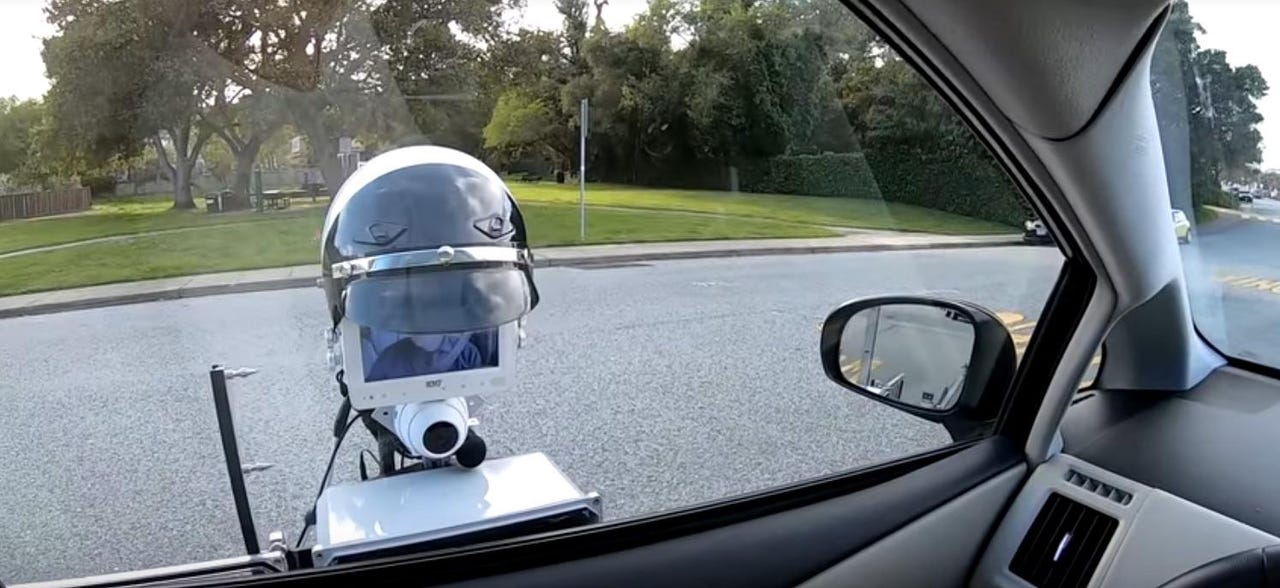A robot cop that executes traffic stops. But will cops test it?

Could it reduce the potential of a deadly ending?
We've seen the story too many times before.
It all starts with an alleged malfunctioning taillight.
It ends with a shooting and, often, an exoneration.
And all this from a supposedly routine traffic stop.
Reuben Brewer, a senior robotics researcher SRI International, a Silicon Valley-based non-profit, wondered if this might be one of those rare moments when a robot might improve society's lot.
So he created a robotic being called the GoBetween. It slides out from the front of a police vehicle and is the first contact the driver has with the authorities.
Instead of a face, this robocop has two cameras, a speake,r and a microphone. It also has a screen on which you can see the human police officer's face.
If you've been stopped, you show your license and registration to the camera.
Then, if the officer decides to issue you a ticket, it's printed from the body of the robot.
Must-see offers
The good intentions pour from this idea.
The robocop isn't going to pull a gun on you. He doesn't come to you with the possibility of an aggressive, threatening posture.
The conversation can remain civil. Both the driver and the officer are given a level of protection.
Brewer explained the psychology to The Washington Post: "People are more dangerous when they're scared, so the goal is to remove the possibility of being physically hurt so that they're less scared and less dangerous."
You might imagine that police forces, keen on de-escalating conflict, would be eager to at least test this idea.
So far, though, Brewer hasn't found any takers.
He has talked to four police departments. The reactions have been varied.
Yes, of course, a bad guy driver might shoot the robot and drive away. Some drivers might just drive away without shooting, reasoning that the robot will be an impediment to the police car's ability to chase.
But anything that might, just might, begin to reduce the number of senseless deaths when police encounter drivers surely has to be worth trying.
A robot won't suddenly change prejudices. There's a small chance that it might, however, reduce tensions by just a tiny amount.
That tiny amount might, even if it's only in a few instances, be the difference between life and death.
